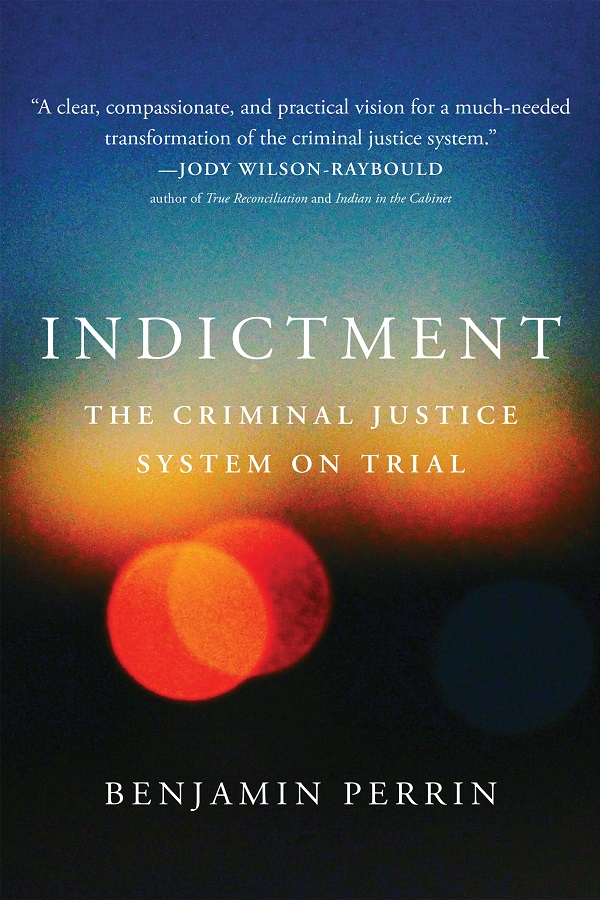A handwritten letter from an incarcerated man got Benjamin Perrin rethinking Canada’s criminal justice system.
Perrin, a professor in UBC’s Peter A. Allard School of Law and former advisor to the Harper government, found the man’s accounts deeply disturbing. They prompted him to rethink the legal system he had worked in, researched and taught about his entire professional life.
In his new book, Indictment: The Criminal Justice System on Trial, Perrin outlines the cracks and chasms he sees in the criminal justice system and how Canada could create a better model for victims, offenders and society.
What prompted you to look into Canada’s justice system?
In 2018, an Indigenous man who was incarcerated at the time wrote me an eight-page letter from his cell, sharing his traumatic experiences in prison. He said: “If you want to turn a man into an animal, put him in a cage without the resources to build him back up.”
Around that time, Justice Canada under its first Indigenous Minister of Justice, Jody Wilson-Raybould, asked: “If we could design a new criminal justice system from scratch, what would it look like?” This once-in-a-lifetime question and haunting letter were the spark for this project.
What’s wrong with Canada’s criminal justice system?
I interviewed more than 70 people, including folks working on the frontlines, victims of violent crime and people who had been incarcerated. Hearing their stories was life-changing. They spoke of racism, police brutality, trauma and ineffective punitive approaches. I found hope in compassionate, evidence-based ideas we could adopt instead.
While five per cent of the population is Indigenous, 32 per cent of federally incarcerated people in 2021 were Indigenous. In Ontario, analysis in 2006 found that Black people were five times more likely than white people to be subjected to police use of force and 11 times more likely to die as a result. Canadians with a mental or substance-use disorder are nine times more likely to come into contact with police for problems with their emotions, mental health or substance use, and four times more likely to be arrested.
Dozens of studies reveal prison doesn’t reduce crime, but increases reoffending. Our jails are full of people who are racialized, have substance-use disorders, mental-health issues and are poor. Incarceration is cruel, costly, ineffective and deadly. It doesn’t seek to understand and address root issues but exacerbates them.
When you send someone to prison even for relatively minor offences, they can lose housing and support. They can be re-traumatized. And it can set off a chain of events of escalating seriousness. This has enormous social and fiscal costs. But more importantly, we must begin to see people as human beings and not just statistics.

Photo: UBC
What can we change?
We should abolish traditional prisons and jails, and only separate people from society as a last resort in secure rehabilitation and healing centres such as Norway’s Halden prison, which has been called the most humane and innovative prison in the world, with a drop in recidivism (reoffending) from about 65 per cent to 20 per cent after adopting these reforms.
Indigenous-led peacekeeping teams are more effective than police. They have higher rates of community trust and have reduced violent crime rates by 25 per cent on average in First Nations communities that have their own peacemakers, instead of RCMP.
Police aren’t equipped to deal with mental-health crises. Instead, we need specially trained non-police mobile crisis-support teams, such as Crisis Assistance Helping Out on the Streets (CAHOOTS) in Oregon, which responds to 15 to 20 per cent of 911 and non-emergency police calls annually.
Restorative justice programs are also a potential path forward. They focus on healing for the victim, accountability for the offender, and can include dialogue between them. The Collaborative Justice Program in Ottawa has shown higher levels of satisfaction for both parties, and lower rates of recidivism, than the status quo criminal justice system.











